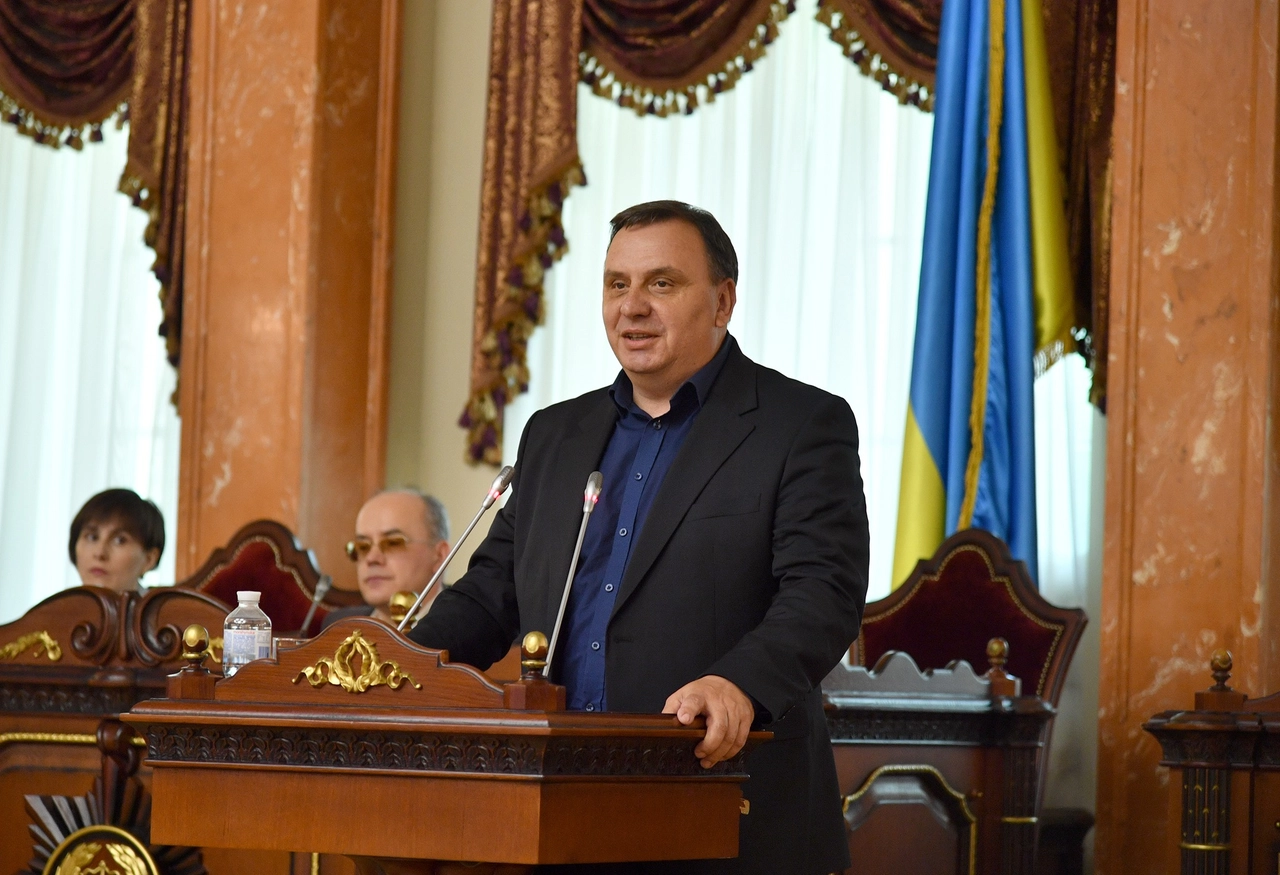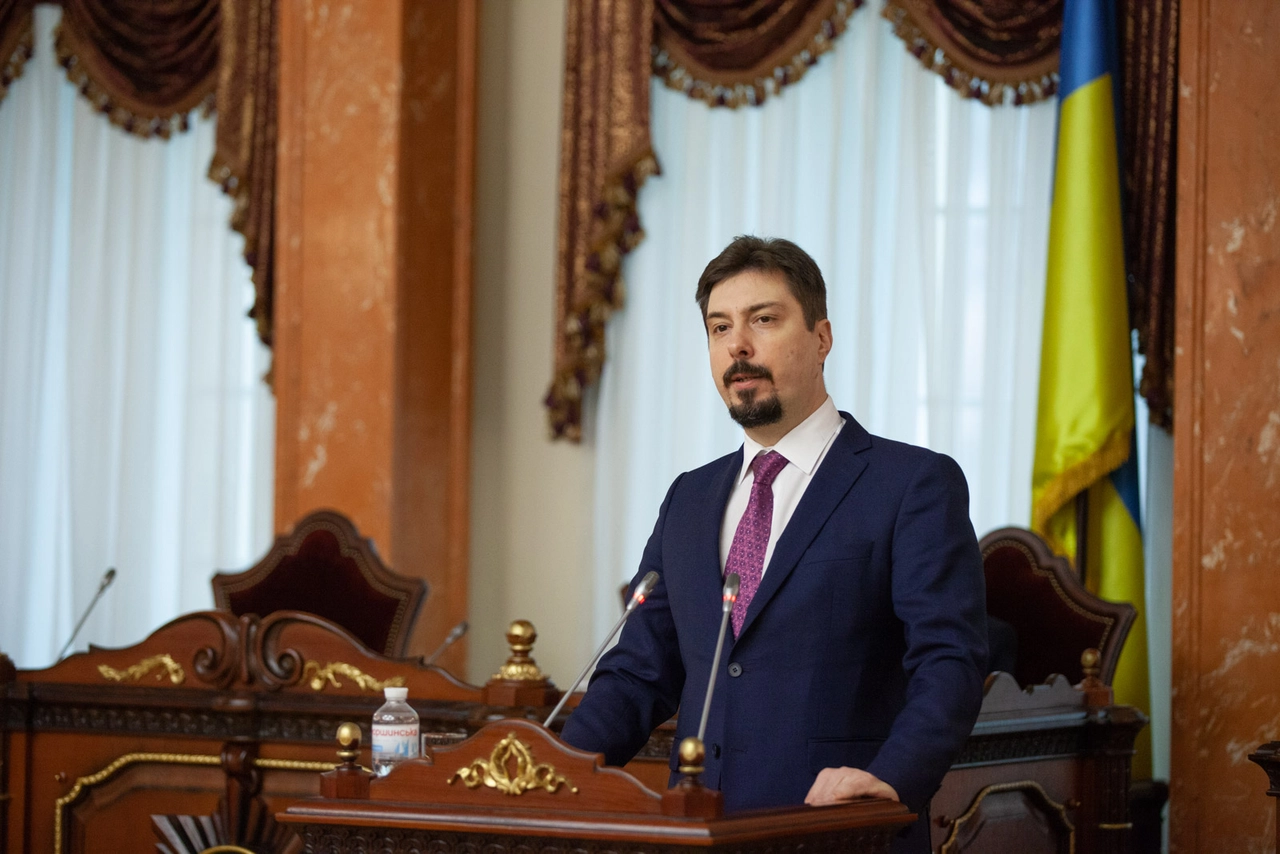Despite an ongoing war with Russia, Ukraine is still working to reform its court system to build an independent judicial branch, weed out corruption, and further integrate with the West – but there’s a clear separation of powers now, its chief justice said.
In a blitz interview with Supreme Court Chief Justice Stanislav Kravchenko – who took over in May following a bribery scandal involving his predecessor – Kyiv Post asked him about whether Ukrainian President Volodymyr Zelensky has tried to influence his work, how the war’s impacted the judicial system, and how possible it is to overcome corruption in the courts.
JOIN US ON TELEGRAM
Follow our coverage of the war on the @Kyivpost_official.
How would you rate the judicial system in Ukraine? Is it meeting the requirements of Ukraine's international partners?
A very interesting question. It is really complicated.
The performance indicators and the large number of proceedings that have been considered during this period indicate that the judicial system is working. And it works effectively.
Today we are talking about the consideration of criminal proceedings regarding war crimes. There are large numbers – 1,280 – in the section on peace, security, and global law and order alone, but there are many more.
We have a very large number of proceedings on crimes against national security – this is, treason and collaborationism. And there are many other criminal court cases as well.

US Threatens to Cut Starlink Access in Ukraine If No Rare Earth Minerals Deal Signed
Regarding international partners – we are constantly reminded that if our country wants to be a full member of the Council of Europe, if it wants to join NATO, then there must be effective mechanisms for fighting organized crime and corruption and protecting investments.
And these issues have not disappeared. They should also be given their due attention, which the courts do.
How has the war affected the judiciary?
How did the war affect it?
About 120 courthouses were seriously damaged. Fifteen places were completely destroyed.
Stanislav Kravchenko. Photo by Supreme Court.
The work of 130 courthouses was stopped due to them being on territories occupied by Russia or in close proximity to the areas of hostilities.
Parts of damaged courthouses are now restored – but there is nothing there, no door handles, no equipment, nothing. Everything has to be bought and repaired.
And how exactly did the war affect the work of judges?
Undoubtedly, the war made us make adjustments.
We started using electronic means of communication due to the threat of missile attacks (most courts do not have bomb shelters). The legislator allowed us.
But you have to be very careful with this because judicial procedures must be completely open and fair.
Were there many traitors among Ukrainian judges after February 24?
This is a very painful question. No, not many. We have isolated cases in those territories that have been occupied. But it is good that these are individual cases.
Can you name the number?
There are less than 10.
But there are still those Crimean judges who switched to the Russian side in 2014-2015 (the peninsula was occupied by the Russian Federation in 2014). There could perhaps be even up to 100 judges there.
But these are all past cases that are at the stage of investigation and have not yet been sent to the courts.
How did the arrest of your predecessor, Vsevolod Knyazev (in May, law enforcement agencies detained him on suspicion of taking a $2.7 million bribe) affect the mood among judges?
To say that it had a negative impact is an understatement. Because judges should be an example of the law. It was ‘Black Monday’ (Knyazev was detained on Monday) for us.
Then the dilemma arises – what to do?
Obviously, many of my colleagues also faced the question and considered just leaving (the judicial sphere). But this is our country. It must be protected. That is, you know, this is one of those very difficult challenges that must also be overcome. That’s exactly what we did.
We removed Knyazev from his post on the second day. After 10 days, a new head was chosen, and the team appointed me.
Clearly, this was because, since 2014, after the events of Maidan, the team had elected me to head the Criminal Court as part of the Supreme Court.
This was obviously the criterion, and the team expressed its vision that in this difficult period, I should run for the position of the head of the Supreme Court. Of course, I couldn't refuse.
I really want to move past this (Knyazev's detention). It was a very unpleasant moment. But we have to move forward. Moreover, we have something to do.
Currently, my function as the head of the Supreme Court is to report what is happening in Ukrainian courts. Believe me, there is something there to tell.
This is such a very persistent, painstaking work. And it deserves mentioning that all of our (judicial) colleagues should not be measured through the lens of the situation with Knyazev.
How can bribery of judges be overcome? Unfortunately, we have seen many cases where the judge's wealth does not correspond to their actual salary. What reform is needed?
You know, in reality, many countries have tried to manage these problems in one way or another. But only certain countries have achieved the maximum result, where we can talk about there being zero issues of corruption.
But I think that in Ukraine, even against the background of these events that we are talking about, it is possible to draw different conclusions.
The fact is, after all, the reforms that were carried out brought results.
Could anyone have imagined that an official at this level, a judge – even more so, the head of the Supreme Court – would be brought to justice, would be detained?
This emphasizes the fact that there are no more untouchables in this country. This will be a very good example of the fact that no matter what position you hold – if you break the law, you’ll be held responsible.
The next issue is law enforcement agencies. To date, if we analyze the legislation, there are eight institutions fighting corruption, and each of them has certain powers.
These are, for example, the Specialized Anti-Corruption Prosecutor's Office and the National Anti-Corruption Bureau of Ukraine. They’re running efficiently at a very high level.
My conclusion is, obviously, to some extent people will always remain who they are, and under certain conditions are capable of these actions. However, it is important to build a system so that any wrongdoing is detected. I’m not referring to increasing the punishment, it is big enough.
The role of the courts in the anti-corruption system cannot be underestimated either.
At the moment, do you personally feel pressure from the Office of the President or the president himself regarding adopting certain court decisions?
You know, for me it's a marker, a litmus test. Anyone who would say these things (about pressure from the authorities) simply does not understand the situation.
They do not understand the current government’s approach, the approach of the president.
I have held an administrative position in the courts for a long time, and now I simply cannot imagine someone receiving a command (from the president) and carrying it out. It is simply impossible.
So there is no pressure?
Definitely not. I think you can ask that of any of the judges. They will frankly say that this problem simply does not exist now. It’s hard to imagine.
You can also highlight the text and press Ctrl + Enter













